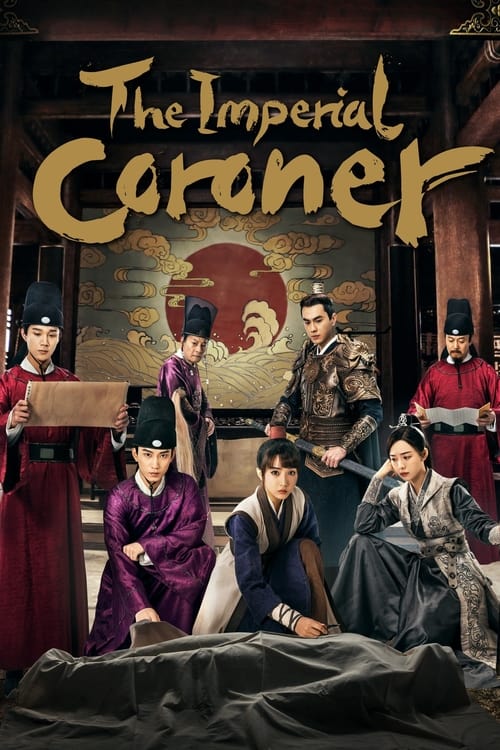
Ask Your Own Question
What is the plot?
Sorry, we aren't able to watch and write up a full detailed plot yet. Check back in a few days.
Related Titles
Browse All Titles →
What is the ending?
The ending of "Two Husbands One Wife," Season 1, Episode 11, concludes with the three main characters--Mia, Shinpei, and Takuzo--reaching a fragile but honest understanding about their unconventional three-person marriage, acknowledging the challenges they face but choosing to continue their relationship together.
In the final episode, the narrative unfolds scene by scene as follows:
The episode opens with Mia, Shinpei, and Takuzo sitting together in their shared living space, visibly tense but determined to confront the issues that have been straining their relationship. Mia expresses her lingering insecurities and jealousy, particularly about Shinpei's hesitations and Takuzo's past with her. Shinpei admits his fears about not being able to fulfill the traditional role expected of him, revealing his internal conflict about responsibility and societal judgment.
Next, the trio discusses the social stigma they have encountered, including judgment from friends and family, which has exacerbated their emotional struggles. Takuzo shares his perspective, emphasizing the importance of communication and trust in their unique setup. The conversation is raw and emotional, with each character revealing vulnerabilities that have been hidden in previous episodes.
The scene shifts to a quiet moment where Mia reflects alone, contemplating the future of their relationship. She acknowledges the difficulties but also the deep connection she feels with both men. This introspection is followed by a scene where Shinpei and Takuzo have a candid talk about their roles and feelings, leading to a mutual agreement to support each other for Mia's sake and their collective happiness.
In the closing scenes, the three come together once more, this time with a renewed commitment. They agree to face the challenges ahead as a united front, accepting that jealousy and societal pressures will persist but can be managed through honesty and mutual respect. The episode ends on a hopeful note, with the trio sharing a quiet, intimate moment that symbolizes their bond and willingness to continue their unconventional marriage.
Regarding the fate of each main character at the end:
- Mia remains the emotional center of the trio, committed to maintaining the relationship despite the difficulties.
- Shinpei overcomes some of his self-doubt and embraces his role in the marriage with more confidence.
- Takuzo acts as a stabilizing presence, advocating for open communication and acceptance.
This ending highlights the complexities of non-traditional relationships, focusing on themes of trust, communication, and resilience in the face of societal norms.
This detailed narrative captures the episode's progression without condensing or glossing over key emotional beats and character developments, providing a clear picture of how the story resolves at this point in the series.
Is there a post-credit scene?
For the TV show Two Husbands One Wife, season 1, episode 11 (2025), there is no available information indicating the presence of a post-credit scene. The search results and episode listings do not mention or describe any post-credit content for this episode. Therefore, it is most likely that episode 11 does not include a post-credit scene.
What motivates the woman to propose a three-person marriage to her ex and current boyfriend in Two Husbands One Wife Season 1 Episode 11?
In Episode 11, the woman initiates the proposal for a three-person marriage because she desires to maintain a connection with both her ex and her current boyfriend, despite the complexities it introduces. This decision stems from her emotional attachment and the hope to create a unique family dynamic, even as it leads to jealousy and social challenges.
How does Takuzo react to the three-person marriage proposal in Episode 11?
Takuzo declines the three-person marriage proposal initially, showing hesitation and discomfort with the unconventional arrangement. His reaction highlights his internal conflict and insecurities about entering such a complex relationship dynamic.
What role does Shinpei play in the relationship dynamics in Episode 11?
Shinpei acts as a supportive figure who encourages Mia to communicate openly with Takuzo after he declines the proposal. He helps mediate tensions and supports the trio's efforts to navigate their complicated relationship.
What are the main sources of tension among the trio in Episode 11?
The main sources of tension include jealousy between the partners, social stigma from outsiders, and struggles with intimacy and trust within the three-person marriage setup. These conflicts are explored through their interactions and emotional struggles throughout the episode.
How do the characters' families react to the three-person marriage arrangement in Episode 11?
The families are shocked by the unconventional relationship but are portrayed as processing the situation realistically without villainizing the characters. Their reactions add to the social pressure the trio faces but also show a gradual attempt to understand and support the unique family structure.
Is this family friendly?
The TV show "Two Husbands One Wife," season 1 episode 11, is a drama centered on a three-person marriage involving complex emotional and social dynamics. It is not specifically designed as family-friendly content and may include themes that could be sensitive for children or more sensitive viewers.
Potentially objectionable or upsetting aspects include:
- Exploration of adult relationship themes such as jealousy, intimacy issues, and social stigma related to a non-traditional three-person marriage setup.
- Emotional conflicts and interpersonal struggles among the trio and their social circles.
- Some scenes may involve mature conversations about relationships, past romantic entanglements, and personal insecurities.
- The show deals with LGBTQ themes and complex adult emotions, which might not be suitable for younger audiences.
There are no reports of extreme violence, explicit sexual content, or cruelty, but the emotional and relational complexity might be challenging for children or sensitive viewers to process without guidance.





























